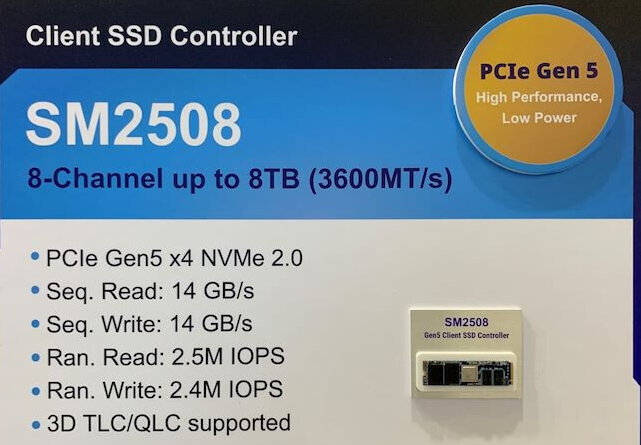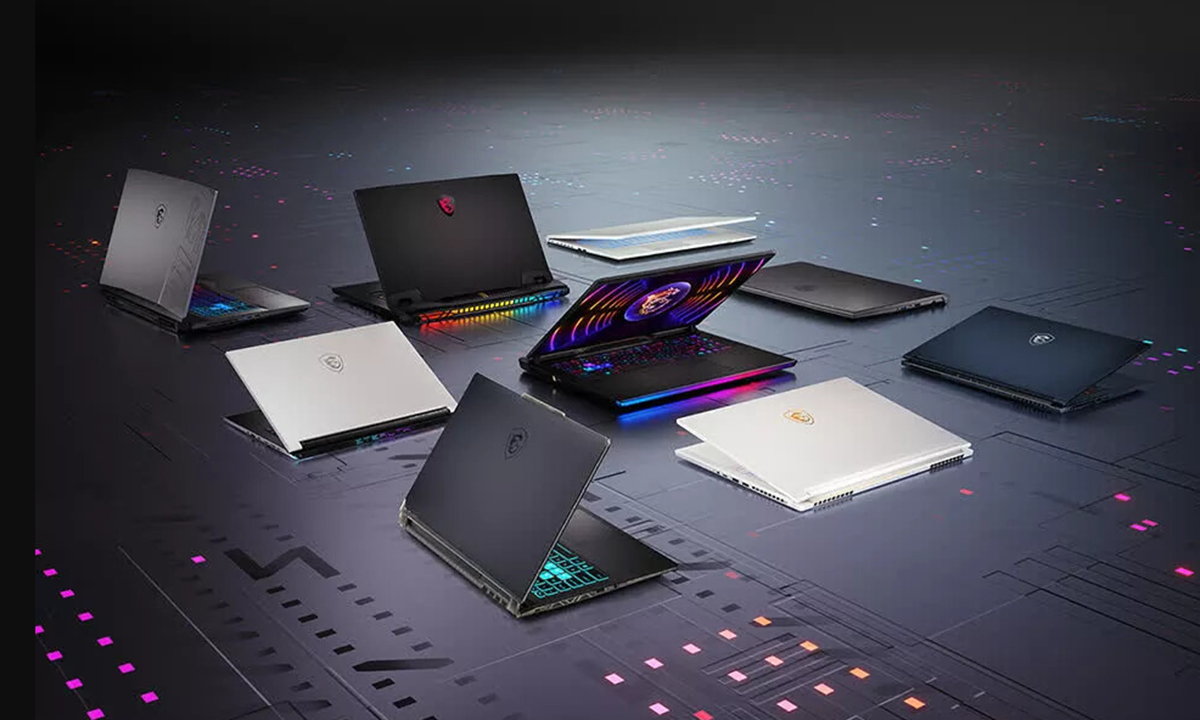Gen5 SSDs for notebooks will be deployed in 2024, Silicon Motion executives predicted at the FMW 2023 Flash Memory event, where they unveiled the new SM2508 controller for the most advanced SSDs on the market.
Along with Phison, Silicon Motion is the largest independent manufacturer of SSD controllers and sells them to a number of integrators who use them outside of the industry giants, Samsung or WD, who make their own controllers. This component It’s key in any SSD because it is responsible for the final performance of the drive, interface management, number of supported channels, RAID level, error correction, NAND flash memory management, as well as additional DRAM memory that acts as a cache.
Silicon Motion SM2508
The controller will be manufactured by TSMC in advanced 6nm processes. It has a processor Dual Core Cortex R8 which supports Symmetric Multiprocessing (SMP) technology and can independently balance the load of multi-core processors. This processor uses the technique removed from order executionallowing the processor to execute instructions based on available input data and execution units without having to wait for the previous instruction to complete.

This approach allows the processor to use resources more efficiently and reduce downtime. The driver supports 8 NAND channels at up to 3600 MT/s per channel and promises to maximize the performance capabilities of the PCIe 5.0 interface, providing sequential read and write speeds of up to 14 GB/s and random speeds of 2.5 million IOPS.
Gen5 SSD for notebooks
The Silicon Motion SM2508 has an ultra-low power consumption of ~3.5W and – according to SM – is suitable for use in any type of device, gaming PCs, workstations and also laptops. Silicon Motion’s product manager actually went ahead with the Gen5 SSD for laptops will be generally deployed in 2024.

We assume that these will have to be special models with a single-sided memory design to be able to be mounted on ultraportables as well, and that they will solve the problem of temperature rise that has caused us to see desktop models with colossal cooling systems and even fans.
Intel and AMD are expected to support Gen5 SSDs for laptops in the next generations of mobile processors with PCIe 5.0 interfaces specially prepared for SSDs.















